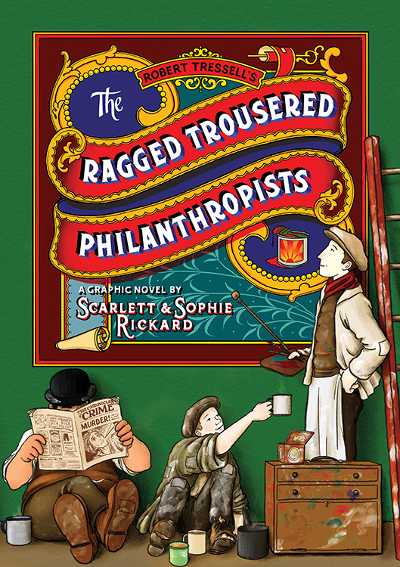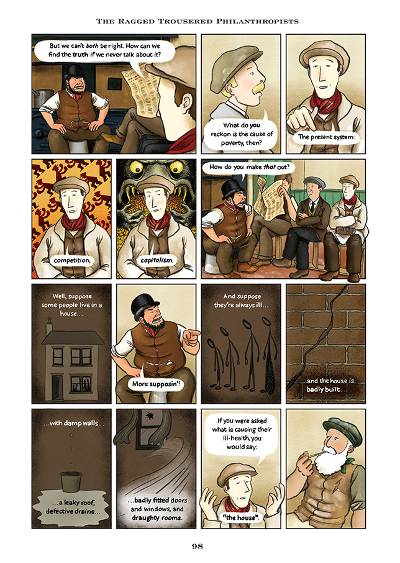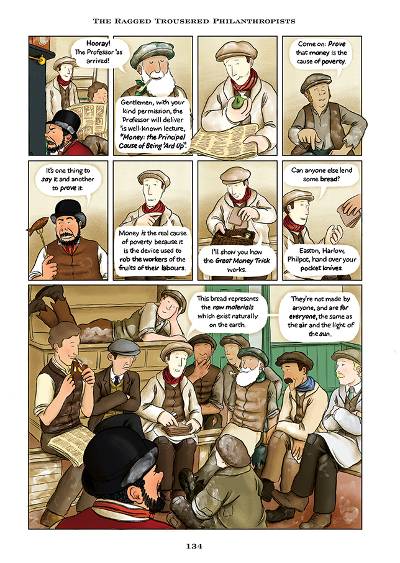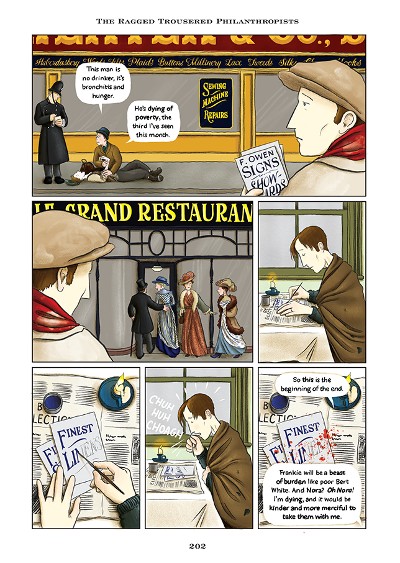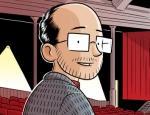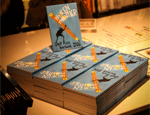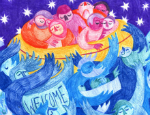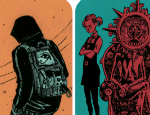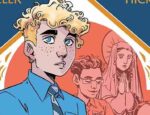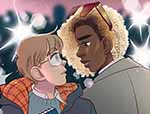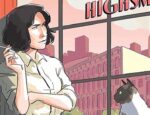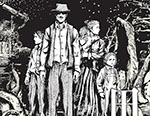Long held to be a masterpiece of socialist literature, Robert Tressell’s classic novel The Ragged Trousered Philanthropists was first published in 1914. Set in the town of Mugsborough, it features a large cast of characters in its examination of the relationship between the vicinity’s working class and the “masters” who exploit them. With a Dickensian flourish many of the characters sport suitably descriptive names – local council members Mr. Sweater the corrupt mayor; Mr. Didlum the house furnisher who constantly cheats the desperate, poverty-stricken locals by buying up their furniture for a pittance; and Dr. Weakling the town physician who is well aware of the dire circumstances of the town’s inhabitants but is too ineffectual to do anything about it.
On the other side of the social divide we have the workers renovating a huge old Victorian house whose stories are the novel’s main narrative focus. They include Ruth and Will Easton and their sinister lodger Slyme, the troubled Linden family, and the socialist thinker Frank Owen. Owen stands in as Tressell’s on-page avatar with his political discourse with his colleagues making up much of the book’s thematic thrust. Various plot threads deal with subjects like alcoholism, the hypocrisy of the church, and the societal inequities which persist unchallenged.
The Ragged Trousered Philanthropists, though, is more discussion-driven than it is event-driven. Owen’s promotion of socialism and his fellow workers’ differing reactions is perhaps most famously realised in his explanation of ‘The Great Money Trick’ but a latter section titled ‘The Great Oration’ is just as memorable, as a visiting lecturer gives a talk on the history of capitalism and how a just society could rise from its ashes.
What Scarlett and Sophie Rickard’s graphic novel version of the novel (edited by David Hine) accomplishes should not be underestimated. While noted comics adaptations of classic literature are something of a staple of publisher SelfMadeHero there are books that do not so easily lend themselves to the medium. To take a book with such a high page count and ensure its message and themes are as powerful as in their original form is a huge achievement by Sophie Rickard; doubly so when you consider that she takes that sprawling cast of characters and succeeds in retaining their importance as memorable and integral parts of the greater whole.
In that latter aspect Scarlett Rickard’s visual characterisation is vital and she perfectly balances the need for realism with characters whose features are stripped back just enough to ensure that we react to their moods and emotions on a more empathetic level. Given that this is a book that is largely a collection of workplace conversations the Rickard sisters do the near impossible in translating those scenes to the comics page in a sequential way that never degenerates to talking heads syndrome. Frequent shifts in perspective and page/panel structure ensure the illusion that the reader is in the room with the characters, and the colouring choices accentuate mood throughout. Individual illustrated chapter headings also give a requisite sense of period history to the proceedings.
What makes this such a relevant read though is how frighteningly it reflects our current world. Tressell’s novel was not simply an indictment on the appalling practices of the capitalist elite. It was a damning commentary on how the working classes of the time were complicit in their own oppression, perpetuating the very system that abused them by supporting those who exploited them and believing that a world divided into the wealthy and the poor was the natural order of things.
What this adaptation of The Ragged Trousered Philanthropists underlines is that we have really not come much further as a society in the UK since the novel was published over a century ago. The country continues to vote in the party of corruption, food banks and elitism. The manipulated xenophobia of the workers of Tressell’s novel can be seen in Brexit, rampant Islamophobia and the casual racism that is engrained in the British consciousness. And 108 years later the social injustices of capitalism are entrenched in a world designed to benefit the few over the many.
Scarlett and Sophie Rickard’s remarkable translation of this book to the comics form is a most timely reminder then that Robert Tressell’s original vision is as relevant now as it ever was.
Sophie Rickard (W), Scarlett Rickard (A), David Hine (E), adapted from the novel by Robert Tressell • SelfMadeHero, £14.99
Also available at Gosh! Comics here
Review by Andy Oliver





